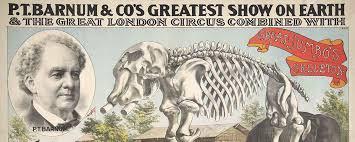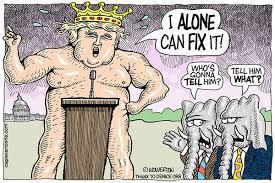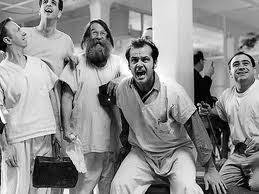Mass shootings keep us revisiting the gun issue. Many Americans want guns for self-protection in the home. But guns in homes overwhelmingly shoot family members. They kill or maim about 7,000 children every year. Intruders stopped: practically none.

These gun ideas constitute magical thinking. Believing something because you wish to, even if actually — even if manifestly — untrue. We obsess over “keeping us safe” from terrorism, while shrugging off the firearm death toll, 30,000 Americans annually — a hundred times greater. “Right-to-life” is for the unborn, not for gun victims.
Now, it happens that many of these same magical thinkers about guns also believe evolution and climate change (and the human role in it) are lies; that mainstream media disseminate fake news; while Trump tells it like it is. That immigrants are bad for the economy.

Is there a pattern here?
The Economist’s “Lexington” columnist recently examined this, citing a forthcoming book by Eric Oliver and Thomas Wood, Enchanted America. The Trump phenomenon may be rooted not so much in conservative ideology as superstition. (Indeed, traditional conservative ideology has been turned on its head.) People holding some or all of the beliefs I mentioned are called “intuitionists,” understanding the world on the basis of feelings and gut instincts, not principles, values, or empirical facts (to which they’re impervious).

“How,” asks Lexington, “has such a rich, well-governed place come to this?” He invokes Richard Hofstadter’s famous 1964 essay, “The Paranoid Style in American Politics” — a tendency which may be triggered by being on the losing side of cultural conflicts. This applies to religious fundamentalists and rural and rustbelt whites. Their gravitating toward the political right makes the right particularly “the domain of unreason.” (Though there’s plenty of irrationality on the left too.)
Kurt Anderson’s recent book, Fantasyland: How America Went Haywire, finds magical thinking pervades our history. After all, the country began with religious fanatics (the Puritans).


Of course Americans are not alone in magical thinking. It’s common everywhere. Yet today’s America is striking for the broad range of delusions many people hold. The book I recently reviewed about conspiracy theories shows those who swallow one are likelier to swallow others. It’s the way they see the world.
When it comes to religion, I’ve always thought beliefs that would be deemed insane if held by only a few have to be considered normal when held by the many. People compartmentalize, and can be perfectly rational on the whole while their minds harbor ghettoes wherein reason’s writ does not run.

